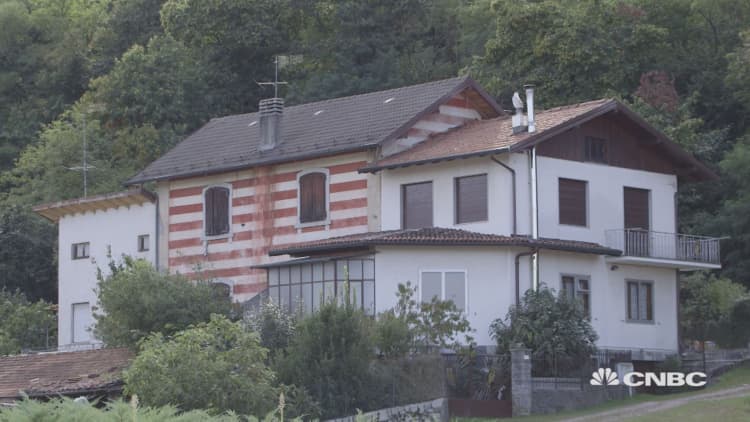
The days are getting shorter, the leaves are falling from the trees and the mornings are that little bit cooler. Fall has arrived, and over the next few months many of us will use boilers to keep our homes warm.
In Italy, one business is looking to use hydrogen to help heat properties. The Giacomini Group's Federico Fioroni told CNBC that the company's work on hydrogen dates back to the early 2000s, as part of a wider project looking at different sustainable sources of energy.
"The aim of the project was to develop a sustainable, zero emissions system for heat production," Fioroni said.
One of the results of the project has been the development of what Fioroni said was a "catalytic boiler which converts hydrogen into heat power."
Giacomini has developed a catalytic combustor that it says is a condensation boiler based on an "innovative catalytic hydrogen burner."
This burner is powered by gaseous hydrogen, which is used as a fuel, and atmospheric air. A catalytic reaction takes place, combines the hydrogen and oxygen and produces both heat and water in the form of steam. Giacomini's Samuele Molina described it as a "real zero emission system."
To become fully self-sufficient, the boiler has been placed in an integrated system, the Solenco Powerbox. Electricity from solar panels on the roof is used to produce and store hydrogen. This hydrogen is used to fuel the boiler.
Hugo Vandenborre, president and CEO of Solenco Power, said that the Solenco system was based on three main components. "One is a reversible fuel cell," he said. "Electricity splits water into hydrogen and oxygen, and the same cell can later use the hydrogen to produce electricity and heat."
Vandenborre said the system also had a catalytic boiler: "This boiler, fueled with hydrogen, produces extra heat. And, of course, we also have a water storage tank in order to provide heat for sanitary applications."




